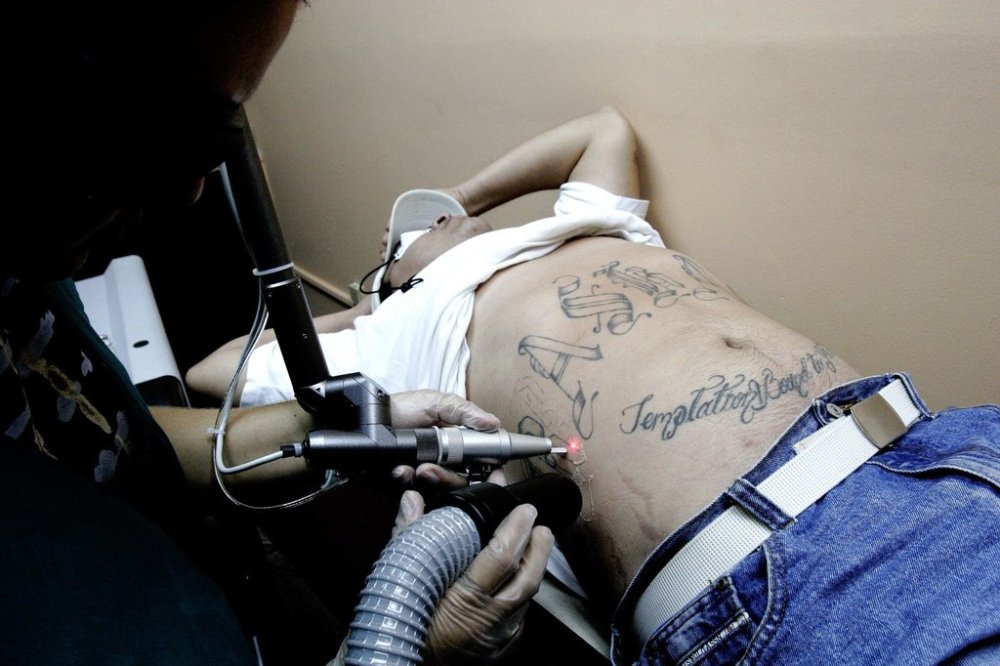Everyday tattoos got Venezuelan men ID’d as gang members and deported, lawyers say
Advertisement
Read this article for free:
or
Already have an account? Log in here »
To continue reading, please subscribe:
Monthly Digital Subscription
$0 for the first 4 weeks*
- Enjoy unlimited reading on winnipegfreepress.com
- Read the E-Edition, our digital replica newspaper
- Access News Break, our award-winning app
- Play interactive puzzles
*No charge for 4 weeks then price increases to the regular rate of $19.95 plus GST every four weeks. Offer available to new and qualified returning subscribers only. Cancel any time.
Monthly Digital Subscription
$4.99/week*
- Enjoy unlimited reading on winnipegfreepress.com
- Read the E-Edition, our digital replica newspaper
- Access News Break, our award-winning app
- Play interactive puzzles
*Billed as $19.95 plus GST every four weeks. Cancel any time.
To continue reading, please subscribe:
Add Free Press access to your Brandon Sun subscription for only an additional
$1 for the first 4 weeks*
*Your next subscription payment will increase by $1.00 and you will be charged $16.99 plus GST for four weeks. After four weeks, your payment will increase to $23.99 plus GST every four weeks.
Read unlimited articles for free today:
or
Already have an account? Log in here »
Hey there, time traveller!
This article was published 20/03/2025 (294 days ago), so information in it may no longer be current.
A crown over a soccer ball. An eyeball that “looked cool.” Flowers.
Those are some of the everyday tattoos that defense lawyers say helped lead to the sudden weekend deportation of roughly 200 Venezuelan men who are accused of being members of the ruthless gang Tren de Aragua.
President Donald Trump ordered the men removed from the U.S. and sent to a notorious El Salvadoran prison under an 18th century wartime law that allows noncitizens to be deported without due process.

The proclamation issued by Trump argued that the wartime law applied because the gang that originated in Venezuela is “perpetrating an invasion” of the United States.
Most lawyers have dismissed that argument and noted that the government has not produced evidence to prove the men are gang members. The men were flown out of the U.S. before they could meet with their attorneys.
Tattoos are signals of membership in some Latin American gangs, with the facial tattoos of the El Salvadoran group MS-13 perhaps the best known. Experts, though, say tattoos are not central to Tren de Aragua. They also note that tattoos, hugely popular all over the world, are often nothing more than body art.
As for a crown tattoo, some law enforcement officials say it can represent membership in Tren de Aragua or the U.S. gang the Latin Kings. But just a glance online will turn up websites offering hundreds of crown varieties, with one noting they “add a touch of elegance to any look.” The situation is similar for stars and clocks, common tattoos that are regularly flagged as gang symbols by law enforcement.
Often they mean nothing at all, said Karla Ostolaza, managing director at the New York City public defender nonprofit The Bronx Defenders. Ostolaza has defended numerous Latin American immigrants targeted for anything from tattoos to Michael Jordan T-shirts.
The tattoos set off no alarm bells in a suburban U.S. gym, but “worn by someone of that nationality it becomes a sign of criminality, danger and gang affiliation,” she said.
U.S. officials have said agents did not rely on “tattoos alone” to identify gang members before the weekend flights. But lawyers and family members say tattoos were repeatedly used to argue that the men belonged to Tren de Aragua.
Take the story of a Venezuelan man identified in court documents only as J.G.G., who said he was told his tattoos showed his membership.
“He told officials he’d found them in a Google search, and thought an eyeball design `looked cool,’” said a filing by his lawyers.
Or there’s Jerce Reyes Barrios, 36, whose defense lawyer said in a sworn declaration that authorities identified him as being in Tren de Aragua member in part because of a tattoo of a crown over a soccer ball and the word “Dios,” or God.
Reyes Barrios had been a professional soccer player and he chose that tattoo because the crown looked like the logo of his favorite team, the Spanish soccer club Real Madrid, his lawyer, Linette Tobin said in the filing.
A photo of the tattoo included in the filing shows it looks like the Real Madrid logo.

